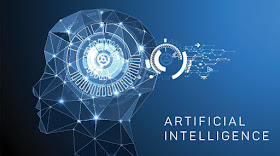New and creative uses of artificial intelligence are being developed every day. EdTech is an area where the use of AI has flown largely under the radar thus far but has the potential to reimagine the student/teacher relationship and improve student outcomes across the board.
Artificial Intelligence is listed on top tech trends by multiple survey's and researchers and is definitely something to watch.
Bill Salak, the Chief Technology Officer for Brainly — the world's largest peer-to-peer learning community — has been closely following developments in AI in the EdTech space and has incorporated some of the industry's most forward thinking applications into Brainly's DNA, creating a more dynamic education space for today's students.
Salak has developed insights and predictions for the future of AI in EdTech and would be happy to share them. Here are a few of the highlights:

1. AI will lead to even better personalization.
With the advent of AI, the many students-to-one-teacher model is ripe for reinvention. AI will allow for students to access information along their own unique learning curve, positioning teachers to best advise students in a personalized way, rather than a way that works for all 30 students in a class.
2. Teachers will have more time for teaching.
AI can be utilized to reduce or even eliminate mundane administrative tasks like grading assignments opening up more time to create bespoke lesson plans for each student.
3. AI will help teachers get more powerful results.
Teachers will be able to augment their own experience, training and instincts with sophisticated data from AI applications to create a more efficient learning environments and curriculum predicated on the needs and pace of the student.
AI in Education Use Case on Brainly helpful: https://www.disruptordaily.com/ai-education-use-case-brainly/
Brainly, a social network created to help students collaborate, is integrating and exploring the benefits of Artificial Intelligence on its platform. To serve quality content, Brainly actually works with a team of over a thousand moderators who verify questions and answers of its users. Thanks to Machine Learning algorithms, the team of moderators have a powerful support in the automatic filter of spam and low quality content, so they are able to focus on providing quality services to students.
But beyond content moderation, Brainly is also using AI algorithms to personalize its platform’s networking features and to provide an enhanced experience to users with personalized features. The platform will enhance the user experience by making friend suggestions based on areas where students need help. “Each student can gain access to information that helps them along their unique path of their learning curve. In the future, that means that a student won’t have to learn the same exact thing at the same exact pace as 30 of their classmates. Instead, we will be able to hone in on the areas where a student struggles, and tailor their lessons to help them through difficult topics”, says Bill Salak, Brainly CTO.
.
